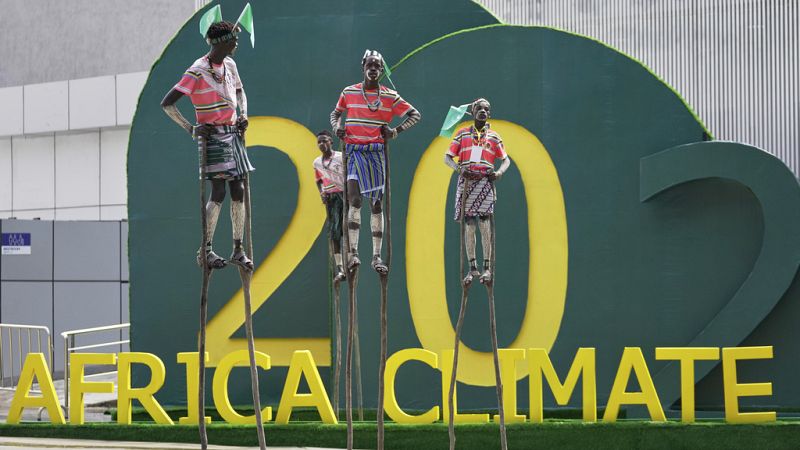African leaders push for climate investment at Ethiopia summit

African leaders and climate activists have called for a radical shift in global climate financing, urging the world to treat Africa not as a victim of climate change but as a strategic partner for investment.
Meeting at the second Africa Climate Summit in Addis Ababa on Monday, dozens of heads of state and government representatives underscored the urgency of mobilizing resources to fund adaptation and renewable energy projects across the continent.
Ethiopian Prime Minister Abiy Ahmed opened the summit with a call to replace “climate aid with climate investment,” emphasizing that Africa’s resilience and renewable energy potential offer immense opportunities. Ethiopia showcased its progress through projects like the Grand Ethiopian Renaissance Dam, set for inauguration on Tuesday, and its tree-planting campaign, which has already planted 48 billion seedlings over the past seven years.
African Union Commission Chairperson Mahamoud Ali Youssouf stressed the need for fairness in addressing the climate crisis:
“The vulnerability of our member countries caused by climate change, debt burden and the structural inequalities of the international financial architecture must be redressed through climate justice. We need a genuine cooperation for the implementation of our continent's adaptation plan by providing financial resources, technology and expertise.”
Kenyan President William Ruto echoed the urgency of unity, warning against isolationist approaches:
“The truth is undeniable. No nation can solve this crisis alone. Only through bold, united and sustained collaboration can we avert climate catastrophe. Isolation is not a winning strategy, it is courting failure.”
The summit comes against the backdrop of worsening climate disasters in Africa—droughts, floods, and food insecurity—that have hit vulnerable communities hardest. While African nations pledged ambitious renewable energy targets during last year’s climate summit, implementation has lagged due to limited financing.
Civil society voices pressed leaders to ensure accountability and push innovative funding mechanisms. Amos Wemanya, a climate justice activist with Greenpeace Africa, argued that the solution lies in holding major polluters responsible:
“This Addis 2nd Climate Summit must be able to find mechanisms for funding Africa's climate action and development. We need to make the polluters who have caused us this climate catastrophe to pay for it. We need to tax the polluters. We need to tax the super rich to be able to generate the resources and make them pay for the climate plunder that they are causing the continent.”
Environmental activist Hindou Oumarou Ibrahim cautioned against “too much talk and not enough action,” calling for African-led solutions that put communities at the center of adaptation strategies.
Delegates are expected to finalize a declaration this week capturing Africa’s priorities, which will be presented at COP30 in November. COP30 President Ambassador André Corrêa do Lago attended the summit and expressed solidarity with Africa’s vision.
Prime Minister Ahmed summed up Africa’s message to the world: “We ask our global partners not to fund us because we are impacted, but to invest with us because we are visionary.”
Today

